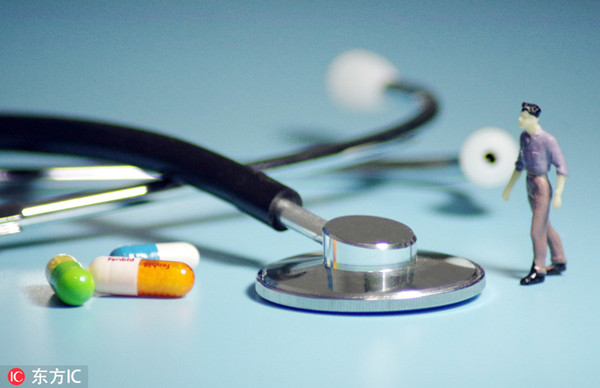Approval of 139 new drugs eases access to affordable medication


China has created and approved 139 new drugs to treat difficult illnesses such as tumors, HIV and diabetes since 2008, giving more patients greater access to affordable and effective medication, officials said on July 31.
Of the certified new drugs, 44 are Class 1 new drugs - innovative medicine containing new chemical substances with clinical value that have never been marketed before.
Some prominent examples include Albuvirtide, China's first and the world's second HIV inhibitor that entered the Chinese market last year, and Carrimycin, the world's first antibiotic created using synthetic biology that can be used in clinical treatments.
The drugs were developed under a project carried out by the Ministry of Science and Technology and the National Health Commission and approved by the State Council, China's Cabinet, in 2008.
Liu Dengfeng, the deputy director of the project's administration and managerial office, said it has yielded reliable and affordable new drugs for patients suffering from major health threats, such as cancer, cardiovascular disease, hepatitis and diabetes.
The project has also helped establish a preliminary ecosystem for pharmaceutical innovation that facilitated the commercialization of scientific and technological output from research institutes, universities and companies via policy support.
This has significantly improved China's capability in producing original, groundbreaking pharmaceutical research, especially in major diseases and pediatric medications, he said.
Liu said the next step is to push for these new drugs to be covered by medical insurance, making them even more accessible to the public.
"Pharmaceuticals are a special commodity. Creating a new drug often requires at least a decade of research and $1 billion in investment, not to mention all the other hidden costs," he said.
"We have to strike a balance between setting an appropriate drug price that is accessible, but also make sure researchers and companies get compensated for their hard work," he added. "This will require further policy support and the building of a healthy innovative ecosystem for the pharmaceutical industry."
In 2018, the annual operating income of China's drug industry reached 2.58 trillion yuan ($375 billion), a year-on-year increase of 12.7 percent. It also made a profit of 336 billion yuan, a 10.9 percent year-on-year increase.
By the end of 2018, more than 280 Chinese generic drugs had obtained registration in the United States and Europe, with 29 drugs supported by the project entering US and European markets.
Chen Kaixian, the deputy chief technical engineer of the project, said some new drugs, like those that treat lung, breast and colorectal cancers, have helped fill a niche in China's clinical treatment.
Lung cancer is the most common malignant tumor for Chinese citizens, Chen said. As a result, Anlotinib Hydrochloride, a new drug to treat lung cancer, has become very popular, and more than 2.6 billion yuan worth of the drug has been sold since it entered the market last year.
While China's innovative biomedicine research is close to world-class status, the nation's overall pharmaceutical research is currently third tier in the world, Chen said. But it is moving rapidly into second tier, on par with Japan and western European countries, though still significantly behind the US.
Basic research, such as those related to finding biological targets that can be stimulated via drugs to treat diseases, is still lacking in China, Chen said. China could also use more research institutions capable of studying and producing innovative drugs.




